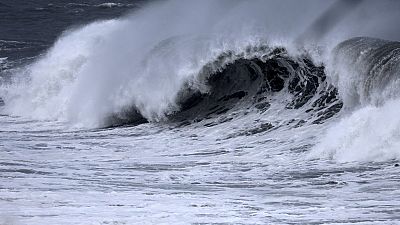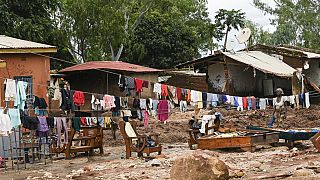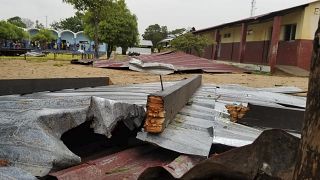Mozambique
Cyclone Freddy is on track to break the record for longest cyclone on record, the United Nations said Friday, as the deadly storm prepares to hit Mozambique again.
"Freddy continues its incredible and dangerous journey," Clare Nullis, spokeswoman for the World Meteorological Organization (WMO), told reporters in Geneva.
Freddy originated off the northern coast of Australia and what was then a tropical storm was named on February 6.
The current record for duration is held by Typhoon John, which lasted 31 days in 1994, the WMO said.
Freddy has been a named tropical cyclone for 33 days.
Once it dissipates, a WMO panel of experts on climate extremes will evaluate all the data to determine whether a new record has indeed been set. The process may take several months, Nullis said.
Freddy has periodically weakened, very temporarily losing its tropical storm status.
"We will obviously have to take that into account in our assessment," said Randall Cerveny, WMO's rapporteur on extreme weather and climate conditions.
Freddy crossed the entire southern Indian Ocean and made landfall in Madagascar on February 21, crossing the island before reaching Mozambique on February 24.
It crossed Mozambique and Zimbabwe, causing heavy rain and flooding.
It then looped back to the coast, where it recharged with moisture and power in the warm waters, before hitting Madagascar again.
It is now heading towards Mozambique. Freddy is expected to make landfall in the northern province of Zambezia Friday night or possibly Saturday morning.
"There will be very damaging winds, a very dangerous storm surge over land, and extreme rainfall over large areas, not only in Mozambique but in northeastern Zimbabwe, southeastern Zambia, and Malawi," the WMO spokeswoman said.
Expected rainfall totals are in the range of 200-300 millimeters, but locally they could be more than 400-500 mm.
"This is more than double the usual monthly rainfall and is in addition to the previous rainfall caused by Freddy," Nullis said.
The last cyclones to cross the entire southern Indian Ocean were tropical cyclones Leon-Eline and Hudah in 2000.














01:00
Pix of the Day: July 3, 2025
Go to video
’Black Empowerment’ law stalls Elon Musk's $113 million investment in SA
01:02
Iran reportedly suspends cooperation with UN nuclear watchdog
Go to video
In Kenya, 90% of packaged food needs health warning label under new rules
00:56
South Africa: At least 101 dead in Eastern Cape floods as rescue efforts continue
00:52
UN warns global progress on gender equality is at risk